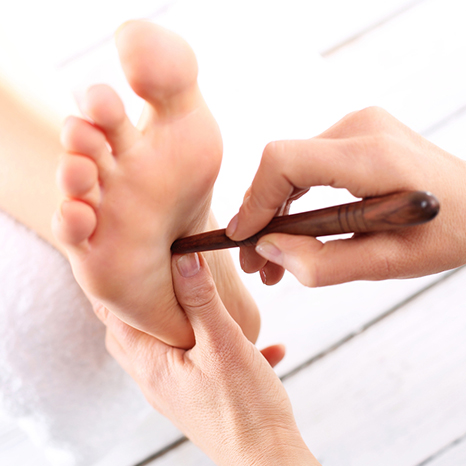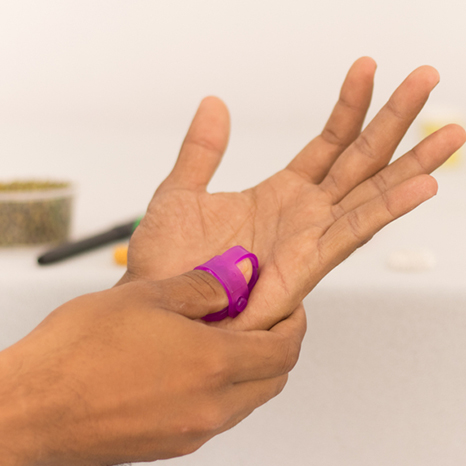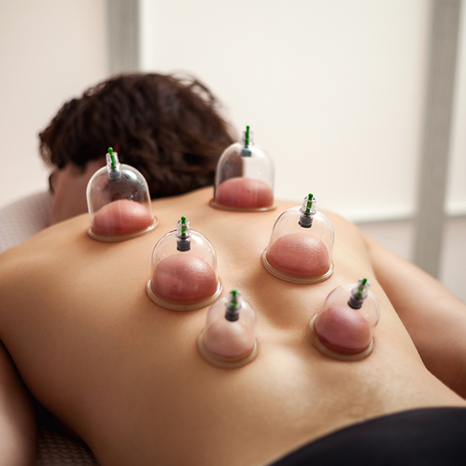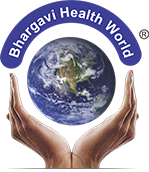Naturopathy consultants
Naturopathy is a holistic approach to health care that emphasizes the body’s inherent ability to heal itself through natural remedies and lifestyle changes. As a naturopathy consultant, one employs various techniques, such as herbal medicine, nutrition, physical manipulations, and stress management, to promote wellness. Naturopaths assess individual health conditions by considering not just physical symptoms but also emotional and environmental factors, encouraging a comprehensive understanding of health. Consultants create personalized treatment plans that may include dietary changes, supplementation, and mind-body practices, fostering self-care and preventive measures. In consultations, practitioners engage in extensive discussions with clients to understand their unique health challenges, empowering them to make informed decisions about their well-being. The philosophy behind naturopathy is rooted in the belief that optimal health can be achieved by addressing the underlying causes of illness rather than merely alleviating symptoms. This integrative approach allows individuals to take active roles in their health journey, aligning with a growing trend toward natural and preventive medicine. Overall, being a naturopathy consultant is about guiding clients toward a balanced lifestyle, improving their health outcomes while focusing on sustainable, natural approaches to wellness.


Nutrition and diet
Nutrition and diet play a critical role in promoting overall health and well-being, influencing everything from physical fitness to mental health. As a nutrition consultant, one provides expert guidance on healthy eating habits, personalized meal planning, and nutritional education tailored to individual needs or specific health conditions. Consultants assess clients' dietary habits, lifestyle factors, and nutritional deficiencies to develop tailored strategies that optimize health outcomes. They emphasize the importance of a balanced diet rich in whole foods, including fruits, vegetables, lean proteins, whole grains, and healthy fats, while also considering cultural preferences and lifestyle constraints. The role requires keeping up with the latest research and dietary guidelines to ensure clients receive evidence-based advice. Successful nutrition consultants not only focus on meal plans but also work to foster a positive relationship with food, helping clients make sustainable lifestyle changes rather than relying on quick fixes or fad diets. Furthermore, they can provide support in areas like weight management, sports nutrition, and dietary restrictions due to allergies or chronic conditions, making their role vital in today’s increasingly health-conscious society. Ultimately, a career in nutrition consultancy is rewarding, as it empowers individuals to take control of their health through informed dietary choices.
Acupuncture
Acupuncture is an ancient Chinese medical practice that involves the insertion of thin needles into specific points on the body to stimulate energy flow, known as Qi (pronounced "chee"). This technique is believed to restore balance and promote the body's natural healing processes. It has gained popularity worldwide as a complementary therapy for various conditions. Commonly treated ailments include chronic pain, such as back pain, neck pain, and osteoarthritis. Acupuncture is also effective for managing headaches and migraines, as well as alleviating symptoms associated with stress, anxiety, and depression. Additionally, it may help with digestive issues like irritable bowel syndrome (IBS), and can support women's health by regulating menstrual cycles and alleviating symptoms of menopause. Many individuals seek acupuncture to enhance overall well-being, improve sleep quality, and boost immune function. While scientific research supports its efficacy for certain conditions, individual responses can vary, making it important for patients to consult qualified practitioners. As a holistic approach, acupuncture not only addresses physical symptoms but also considers emotional and lifestyle factors, reinforcing its role in integrative health care.


Accupressure
Acupressure is a traditional Chinese medicine technique that involves applying pressure to specific points on the body to promote healing and balance. It is rooted in the principles of acupuncture but utilizes fingers, palms, or elbows instead of needles. By stimulating these pressure points, acupressure aims to release tension, improve circulation, and enhance the body’s natural ability to heal itself. Various conditions can be effectively treated or managed through acupressure, including headaches, migraines, back pain, digestive issues, and stress-related disorders. It can also help alleviate symptoms of insomnia, anxiety, and nausea, making it a popular complementary therapy for those undergoing treatments like chemotherapy. Conditions such as menstrual cramps and arthritis can benefit from targeted pressure application as well. The therapy is generally safe and can be done on oneself or with a practitioner’s guidance, making it accessible for many. While research on its efficacy is still growing, many individuals report positive outcomes and relief from various ailments, showcasing acupressure’s potential as a valuable holistic approach to health and wellness.
Seed therapy
Seed therapy, rooted in the principles of natural medicine, utilizes the seeds of various plants to promote healing and restore balance in the body. This holistic approach is based on the idea that plant seeds contain vital energy and nutrients that can influence physical and emotional well-being. Practitioners often use seed therapy to treat a range of conditions, including stress, anxiety, and depression, by applying seeds to specific acupuncture points or energy centers in the body, thereby stimulating energy flow and facilitating emotional release. Additionally, seed therapy is employed to manage chronic pain, digestive issues, allergies, and inflammation. Certain seeds are believed to possess anti-inflammatory and antioxidant properties, making them beneficial for conditions like arthritis and skin disorders. The practice emphasizes individualized treatment, focusing on the unique needs of each patient, thus promoting a tailored healing experience. While more scientific research is necessary to validate its efficacy, many individuals report positive outcomes and a deeper connection to nature through seed therapy. It serves as a complementary modality alongside conventional treatments, fostering a holistic approach to health and wellness.

Magneto therapy
Magnetotherapy, or magnetic field therapy, is an alternative treatment that uses static or pulsed magnetic fields to promote healing and alleviate various health conditions. It is based on the principle that magnetic fields can influence biological processes, potentially enhancing circulation, reducing inflammation, and accelerating tissue repair. While scientific evidence on its efficacy remains mixed, proponents claim it can help alleviate pain, particularly in conditions like arthritis, fibromyalgia, and lower back pain. Additionally, magnetotherapy is sometimes used to manage stress and improve sleep quality, as well as to aid recovery from injuries by stimulating growth factors. While some users report significant improvements in symptoms, it's essential to approach magnetotherapy with caution, as its effectiveness can vary from person to person, and it should not replace conventional medical treatment. Conditions often treated include sports injuries, chronic pain syndromes, post-surgical recovery, and certain neurological disorders. Overall, while magnetotherapy may offer relief for some individuals, further research is necessary to fully understand its benefits and mechanisms. As always, it's advisable to consult with healthcare professionals before starting any alternative therapies.
Cupping therapy
Cuppingtherapy, also known as neurofeedback or brainwave biofeedback, is a technique that trains individuals to regulate their brain activity, utilizing real-time displays of brain function. This innovative approach primarily targets conditions related to dysregulation of brain waves, including Attention Deficit Hyperactivity Disorder (ADHD), anxiety, depression, post-traumatic stress disorder (PTSD), and epilepsy. Through tailored protocols, Cuppingtherapy helps individuals improve their cognitive functions, emotional regulation, and overall mental well-being. It is based on the principle that by providing feedback on brain activity, clients can learn to promote healthier brain wave patterns and, consequently, better manage their symptoms. This non-invasive treatment is particularly appealing for those seeking alternatives to pharmacological interventions and has shown promise in enhancing performance in areas like learning and memory. Additionally, Cuppingtherapy is often integrated into comprehensive treatment plans, alongside traditional therapies, to enhance outcomes for individuals struggling with various psychological and neurological conditions. As research into its efficacy continues to evolve, Cuppingtherapy holds the potential to revolutionize how we approach mental health and cognitive performance.


Chiropractic
Chiropractic care is a form of alternative medicine primarily focused on diagnosing and treating neuromuscular disorders, with an emphasis on treatment through manual adjustment and manipulation of the spine. One of the most common conditions treated by chiropractors is lower back pain, which can result from injury, poor posture, or conditions like herniated discs. Chiropractic treatment is also frequently sought for neck pain, tension headaches, and migraines, as spinal alignment can affect nerve function and overall health. Additionally, many patients seek chiropractic care for joint pain in the arms or legs, and conditions such as sciatica, which is characterized by pain radiating along the sciatic nerve due to spinal issues. Chiropractors may also address issues like sports injuries, work-related strains, and certain types of digestive problems that can be linked to spinal health. While many people turn to chiropractors for relief from chronic pain, the approach is holistic, promoting overall wellness through lifestyle advice, rehabilitative exercises, and nutrition guidance. As awareness of chiropractic benefits grows, it continues to be recognized as a valuable component of a comprehensive healthcare strategy.
Physiotherapy
Physiotherapy is a healthcare discipline focused on enhancing physical function and mobility through a variety of techniques, including movement, exercise, manual therapy, education, and advice. It addresses a wide range of conditions affecting the musculoskeletal, neurological, cardiopulmonary, and integumentary systems. Common conditions treated by physiotherapy include sports injuries, arthritis, stroke rehabilitation, chronic pain, post-surgical recovery, and respiratory issues such as asthma or chronic obstructive pulmonary disease (COPD). Physiotherapists assess and design individualized treatment plans aimed at restoring mobility, improving strength, alleviating pain, and preventing further injuries. They employ therapeutic modalities such as heat, cold, ultrasound, and electrical stimulation to facilitate healing. Additionally, physiotherapy plays a critical role in rehabilitation following orthopedic surgeries like knee or hip replacements, helping patients regain function and independence. By focusing on the whole body and promoting wellness, physiotherapy not only assists in recovery from injury but also enhances overall physical health, contributing to improved quality of life. With growing awareness of its benefits, physiotherapy continues to expand its role in preventive healthcare and wellness management.


Varma kala
Varma Kala, an ancient healing art native to Tamil Nadu, India, is a holistic system that integrates elements of yoga, Ayurveda, and martial arts. This traditional practice focuses on the manipulation of specific points in the body known as "Varma points," which are believed to be energy centers influencing physical, mental, and emotional well-being. By applying pressure or gentle manipulation to these points, practitioners aim to restore balance within the body. Varma Kala is purported to treat a variety of conditions, including musculoskeletal disorders, joint pains, digestive issues, and respiratory ailments. It is also thought to alleviate stress, enhance relaxation, and improve overall vitality. Additionally, Varma Kala is used as a preventive measure, promoting health and longevity by harmonizing bodily functions. While many practitioners and patients report beneficial outcomes, scientific validation and direct empirical research on Varma Kala remain limited, highlighting the importance of further studies. Therefore, anyone considering this therapy should consult qualified practitioners and consider it as a complementary approach rather than a replacement for conventional medical treatment.
